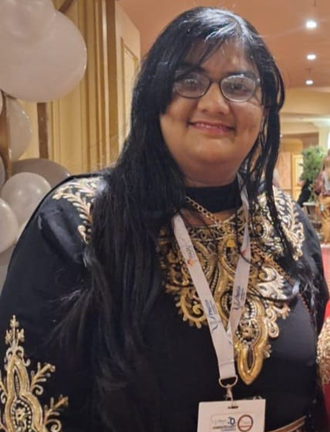
Message from the PsySSA President
“I am deeply honoured that you have entrusted me to be the president of the Psychological Society of South Africa during our 30th anniversary year. Past presidents have provided sterling leadership, and my role is made so much easier because I stand on the shoulders of strong predecessors who have worked tirelessly to advance South African Psychology as a science and profession that is locally and globally relevant. There can be no doubt that when we consider the vibrancy and excellence of scholarly work embodied in and through Psyssa and our recent October conference, that (South) African Psychology is strong and responsive to societal needs. We can reimagine different ways of seeing Psychology without always completely throwing out that which is globally considered to be Psychology. I look forward to this term and working with all of you, especially the PsySSA divisions and local and global collaborators who so ably, help us to enact our vision for Psychology in South Africa and beyond.”
Prof Ronelle Carolissen
PsySSA President

Prof Ronelle Carolissen
President
Prof Ronelle Carolissen is a clinical psychologist and full professor of Psychology in the Department of Psychology at Stellenbosch University. She is an NRF rated researcher and the current president of PsySSA (Psychological Society of South Africa) Her predominantly qualitative research expertise and publications explore transformation in higher education. Her research focuses on decolonial feminist pedagogies and critical, decolonial community psychologies in higher education contexts, highlighting experiences of marginalised university students and academic staff. She serves on South African and international journal editorial boards that intersect in the fields of education and community psychology and serves on managing boards, most notably the SAMRC (South African Medical Research Council 2019-present). She holds the 2016 Psychological Association of South Africa award for excellence in teaching psychology in higher education. She was a visiting professor at Stanford University’s Bing overseas community engagement programme in Cape Town (2015-2019) and is a Fulbright research scholar (2021-2022) alumni and a member of ASSAF (Academy of Science of South Africa). She is the Chief Editor of PINS (Psychology in Society).

Prof Jace Pillay
President-Elect
Prof Jace Pillay is a registered educational and counselling psychologist and the South African Research Chair in Education and Care in Childhood in the Faculty of Education at the University of Johannesburg. In February 2024 he was appointed a UNESCO Chair in Mental Health and Psychological Support for Teachers and Learners in SA. His previous positions at UJ were the Head of the Department of Educational Psychology and Vice Dean in the Faculty of Education. Currently, he heads a research team focusing on the mental health of learners and teachers as well as psychosocial support in schools.

Prof Mercy Tshilidzi Mulaudzi
Past President
Prof Mercy Tshilidzi Mulaudzi is a Professor of Psychology, and Executive Dean in the Faculty of Health Sciences at the University of Venda. She has supervised Masters and doctoral students, and has served as external assessor for students in national and international universities. Her interests are in Mental Health, HIV and AIDS, Gender-Based Violence, and epidemiology. She has presented her research work in local, national and international conferences and some of those papers are published in national and international journals.

Ashley van Heerden
Treasurer
Ashley van Heerden is an HPCSA registered Clinical Psychologist practicing in the Western Cape. She holds a Master’s Degree in Clinical Psychology and a Master’s Degree in Research Psychology. Ashley’s professional focus is on child development, and she has had extensive experience working with children, adolescents, parents and families across both public and private sectors. Beyond her clinical practice, Ashley has developed and implemented cost-effective human rights programmes within the South African context, under the auspices of the United Nations. She further holds a certification in Programme Management from the University of Geneva.

Daniel den Hollander
Additional Member
Daniel Hilbrand den Hollander is a clinical psychologist with extensive experience in both public and private specialised mental health settings in South Africa. He currently is a community psychologist in private practise in Athlone specialising in trauma: interpersonal, complex and structural violence. He is currently the current chair of the South African Society of Clinical Psychologists Division of PsySSA. He is specifically interested in the effects of structural violence and developing South African Psychology. He is passionate about cultivating and promoting empowerment and change: may it be in the therapy room, on radio, or at conferences.

Dr Pakeezah Rajab
Additional Member
Dr Pakeezah Rajab is a Research Psychologist and Psychometrist interested in executive functioning across the lifespan, academic and employee performance, and psychometric assessment development and evaluation. She joined the JVR Africa Group in 2016 and is currently the Senior Researcher in the Product and Research team. She is also a 2024 International Test Commission (ITC) Early Career Scholar.

Dr Kemoneilwe Momi Metsing
Additional Member
Dr. Kemoneilwe Momi Metsing is a registered psychologist and Senior Lecturer at UNISA, She is a Clinical Supervisor for Masters in Educational Psychologist Students and Interns, and an external examiner for Masters in Education Psychology. She guides Master’s students in Educational Psychology, nurturing their growth as professionals. Dr. Metsing is committed to excellence in teaching, research, and community engagement.

Dr Avivit Cherrington
Additional Member
Dr Avivit Cherrington is an educational psychologist with expertise in community development and system-level programmes for mental health and well-being. She is currently an independent consultant and a Research Associate with Nelson Mandela University, supervising postgraduate students aligned to the Chair for Critical Studies in Higher Education Transformation (CriSHET). Her research has focused on understanding and fostering well-being and hope from an Afrocentric lens, as well as promoting critical thinking and engaged humanising pedagogy in teacher education programmes to foster future teachers who are agents of transformative social change.

Prof Angelina Maphula
Additional Member
Angelina Maphula is a Clinical Psychologist and an Associate Professor in the Faculty of Health Science at the University of Venda. As an academic, her role involves teaching, research and supervision of post graduate students in the field of psychology. She has published more than 20 journal articles both nationally and internationally and is known for her impactful community engagement. Her research interest areas include Trauma, HIV/AIDS and mental health. A founder of Prof Angie Foundation – focusing on young people to bring practical solutions. She is currently doing her post-doctoral studies with UCLA in Los Angeles where her focus is on Trauma. She has served previously as vice chair in the DRM division.

Dr Nick Malherbe
Additional Member
Nick Malherbe is a Senior Researcher at the University of South Africa’s Institute for Social and Health Sciences and the South African Medical Research Council–University of South Africa Violence, Injury and Social Asymmetry Research Unit. His research interests include violence, visual methods, and discourse.




